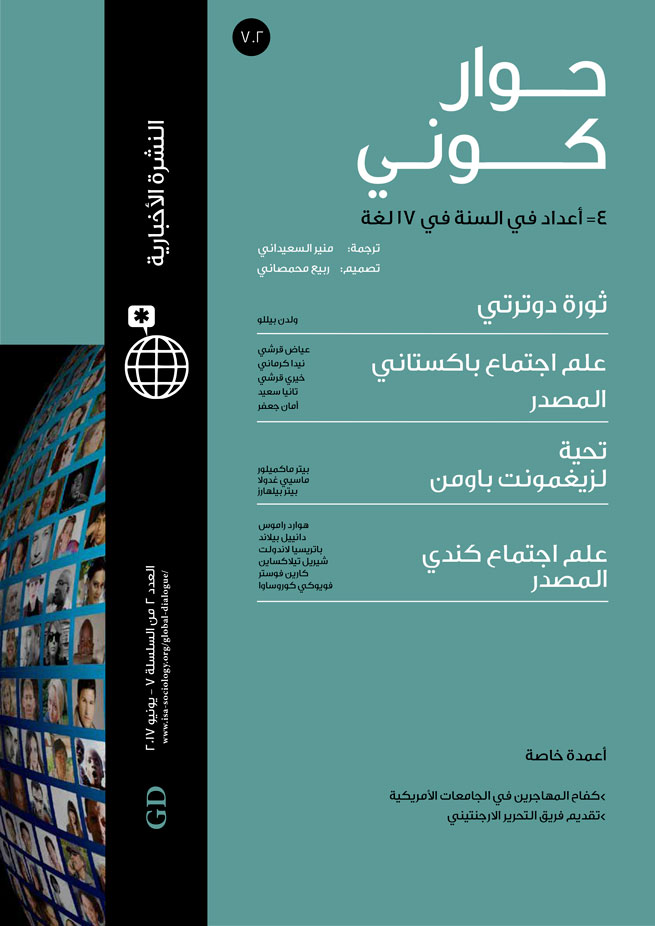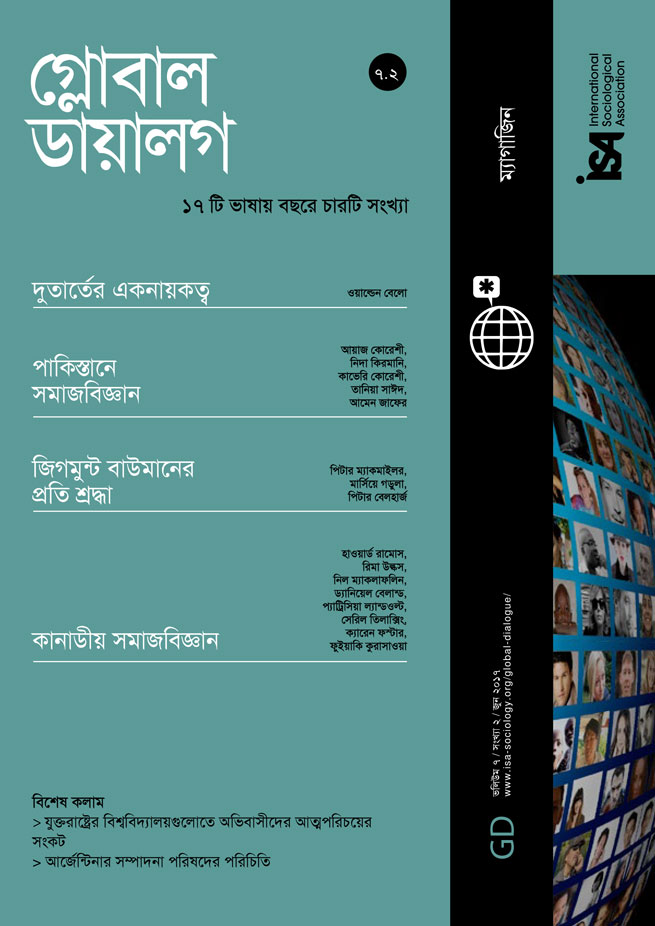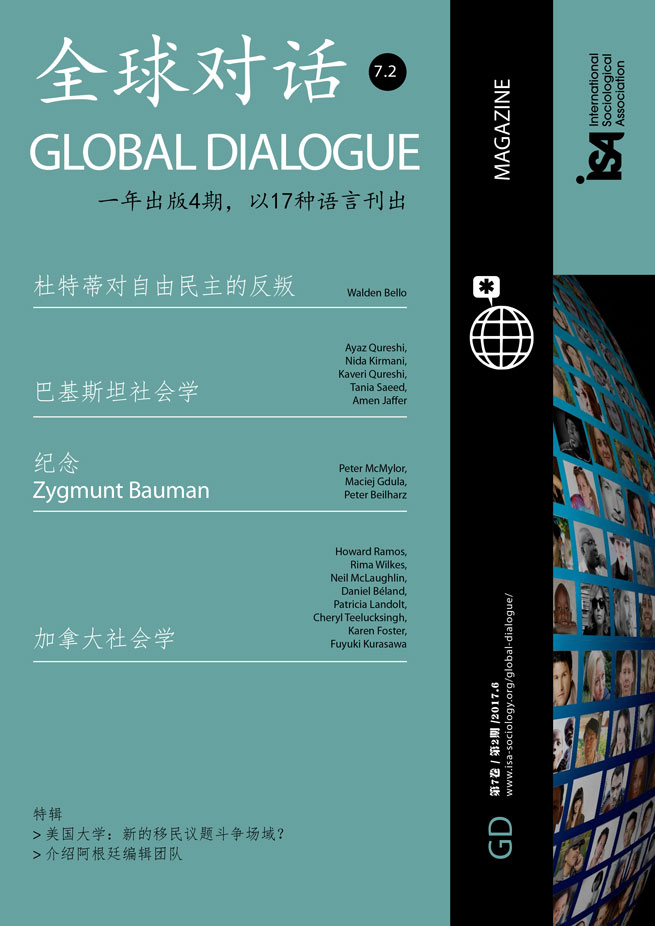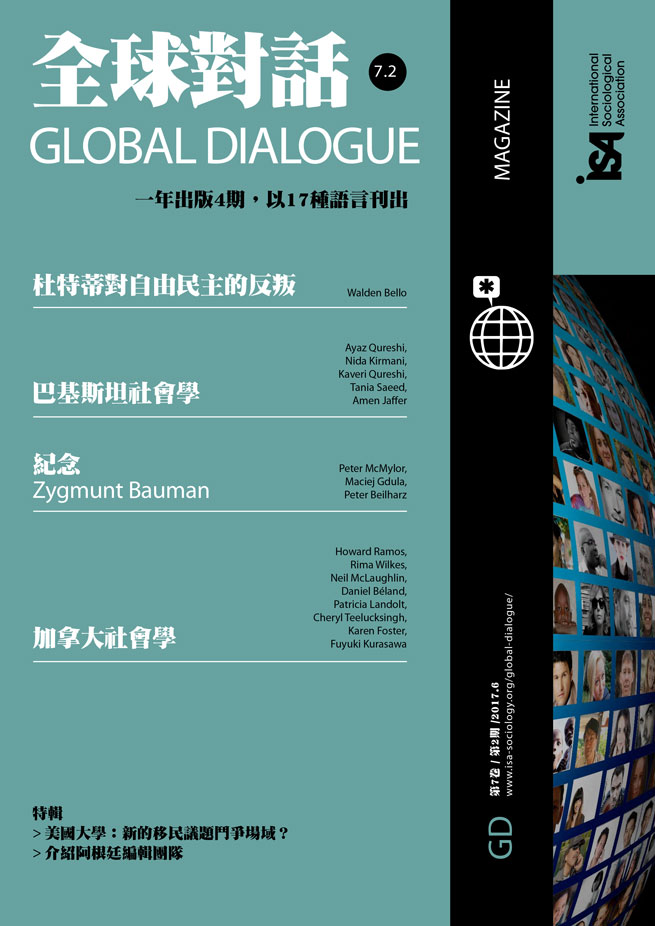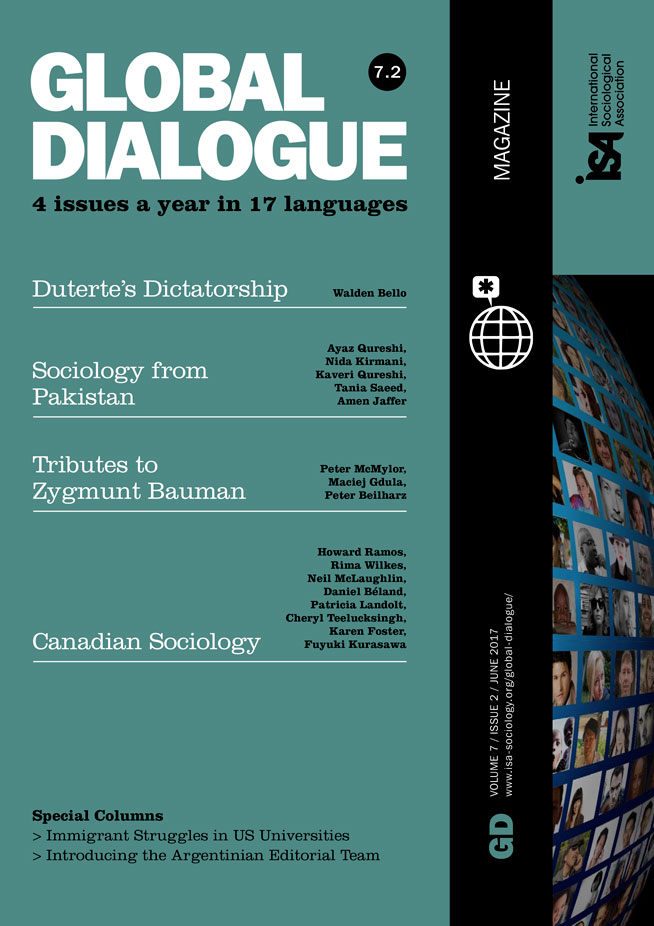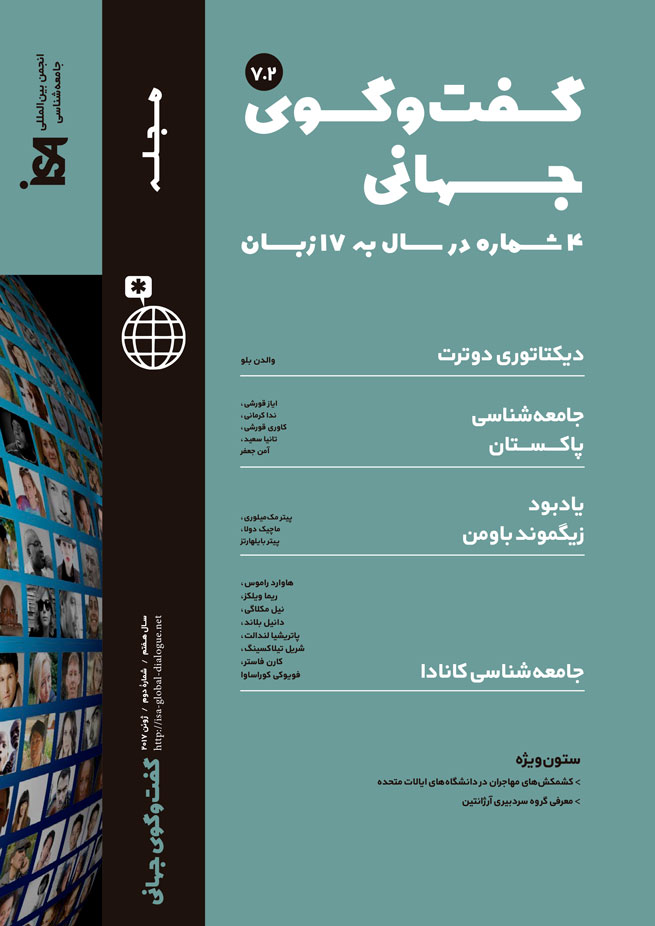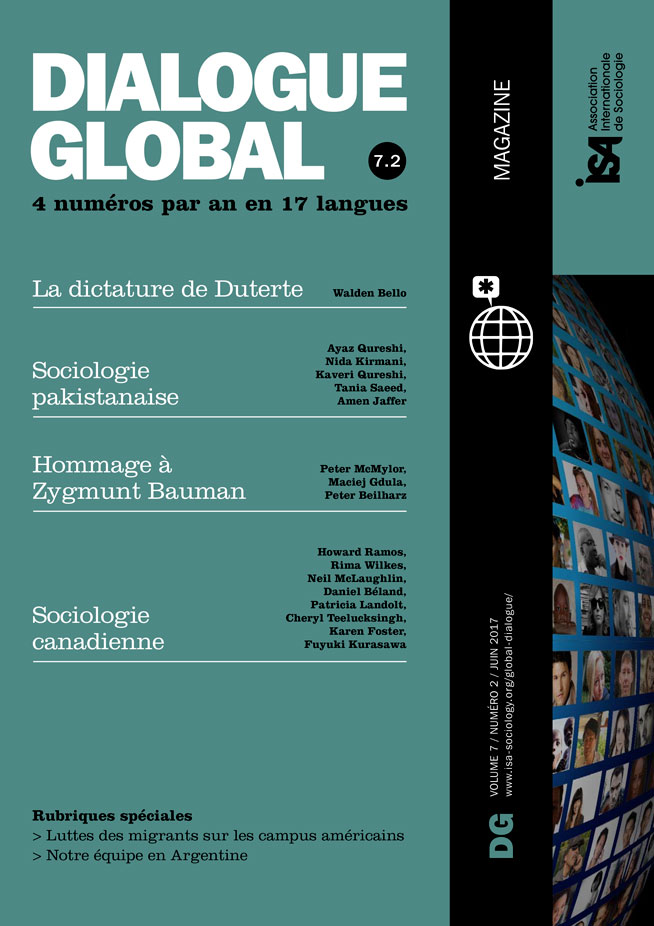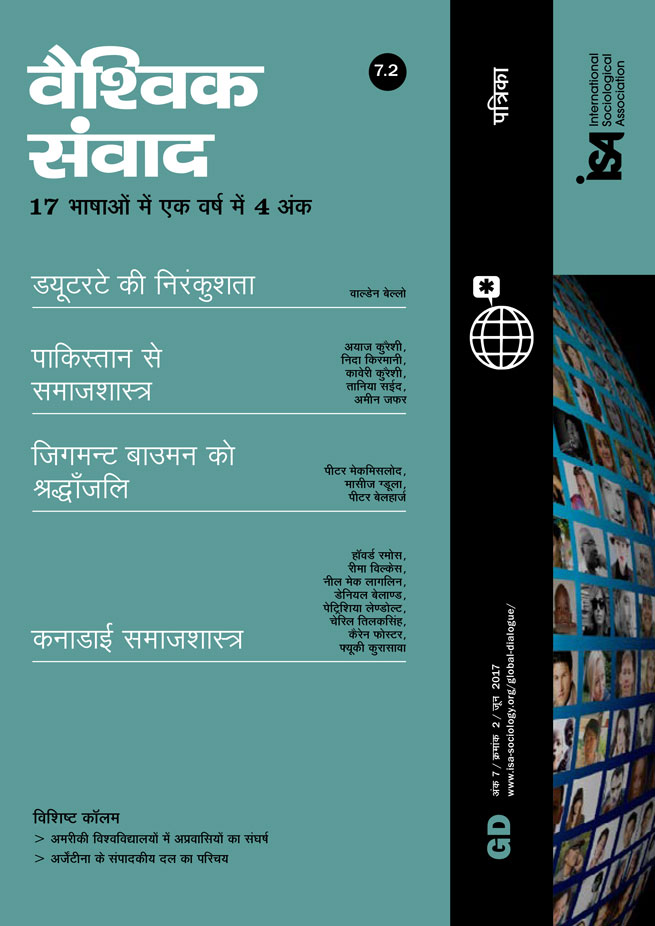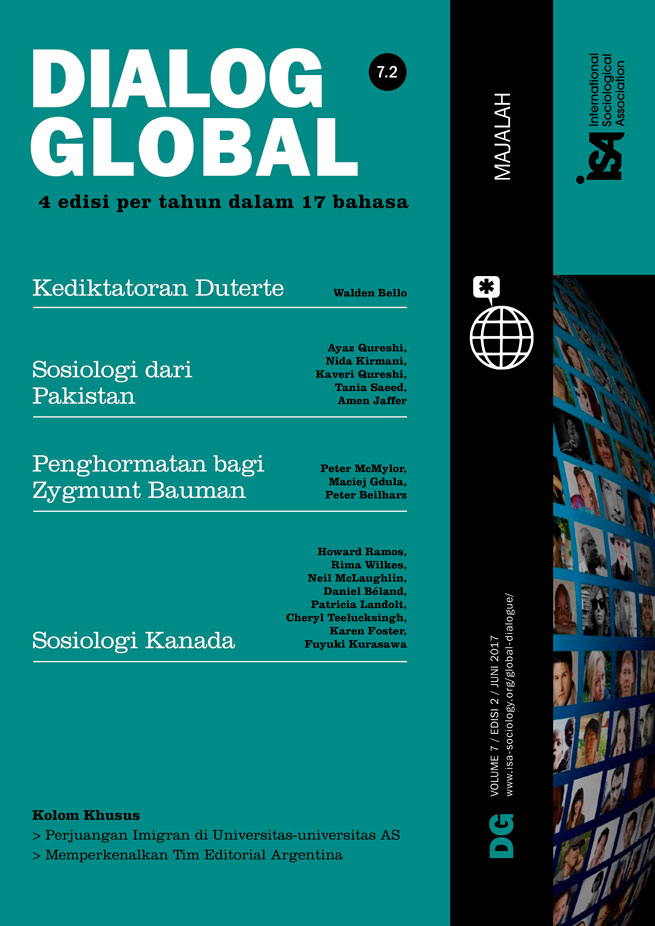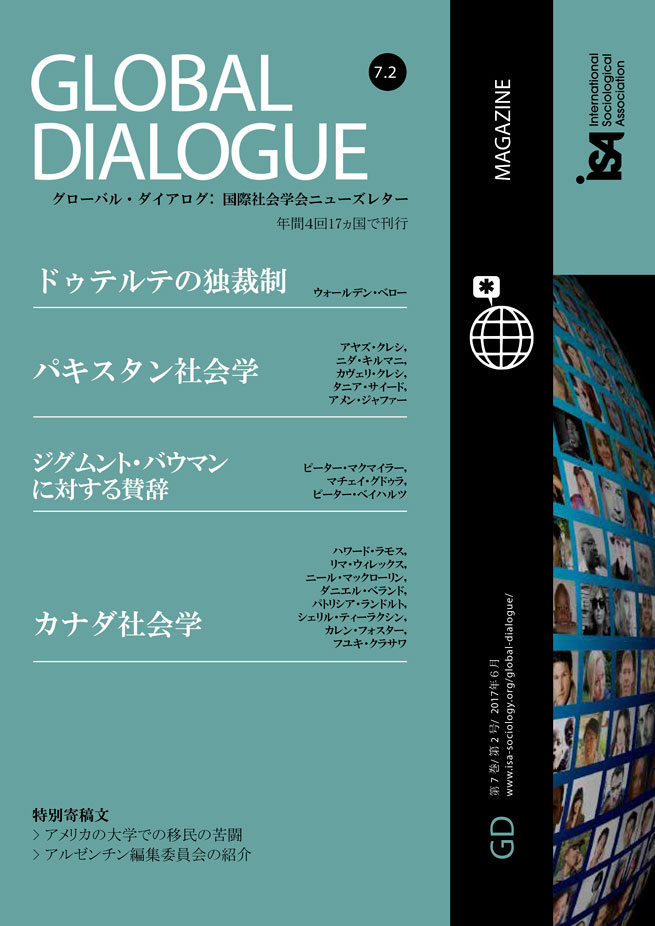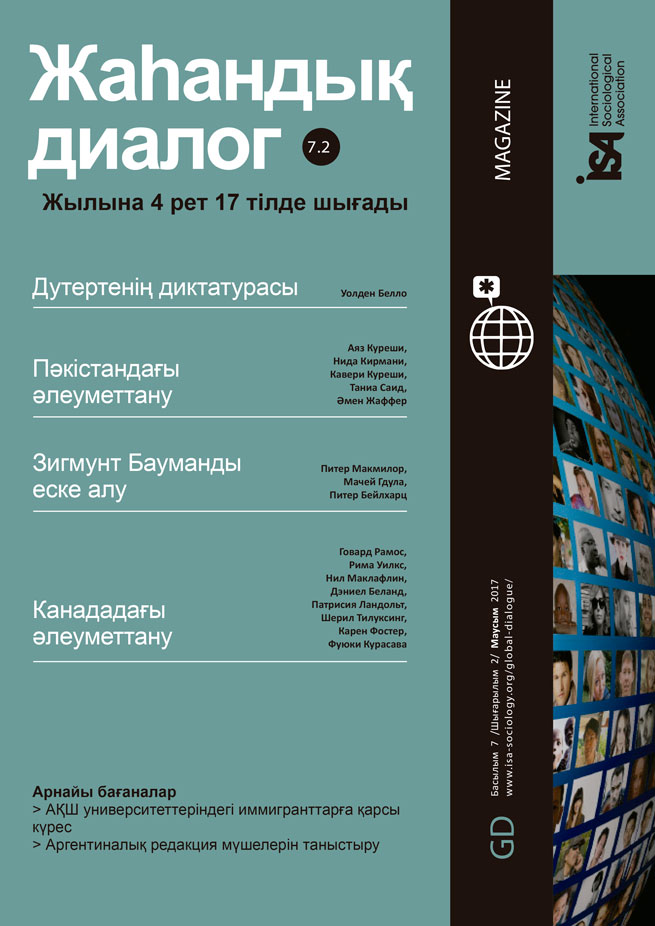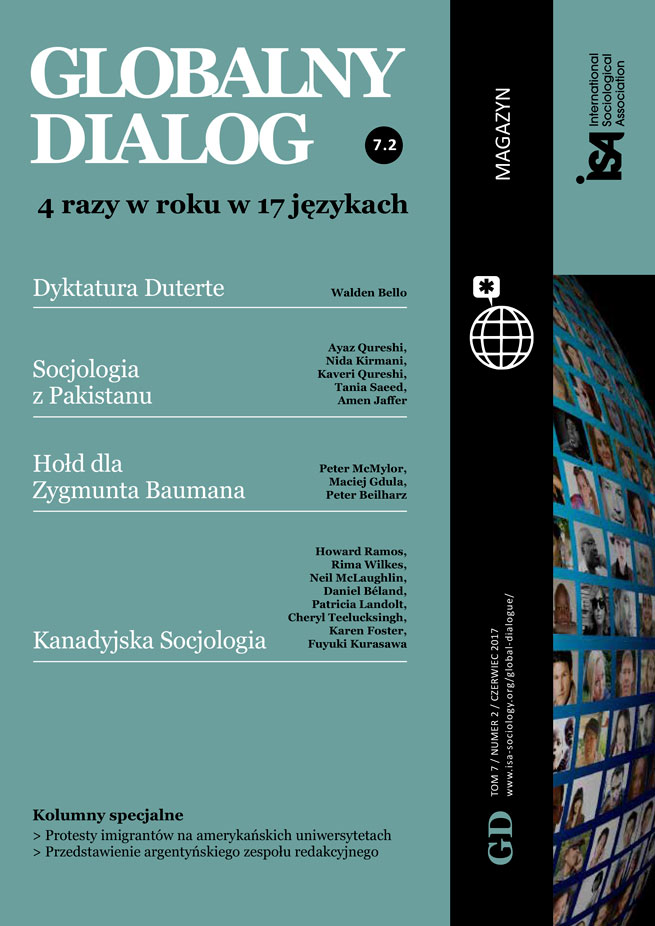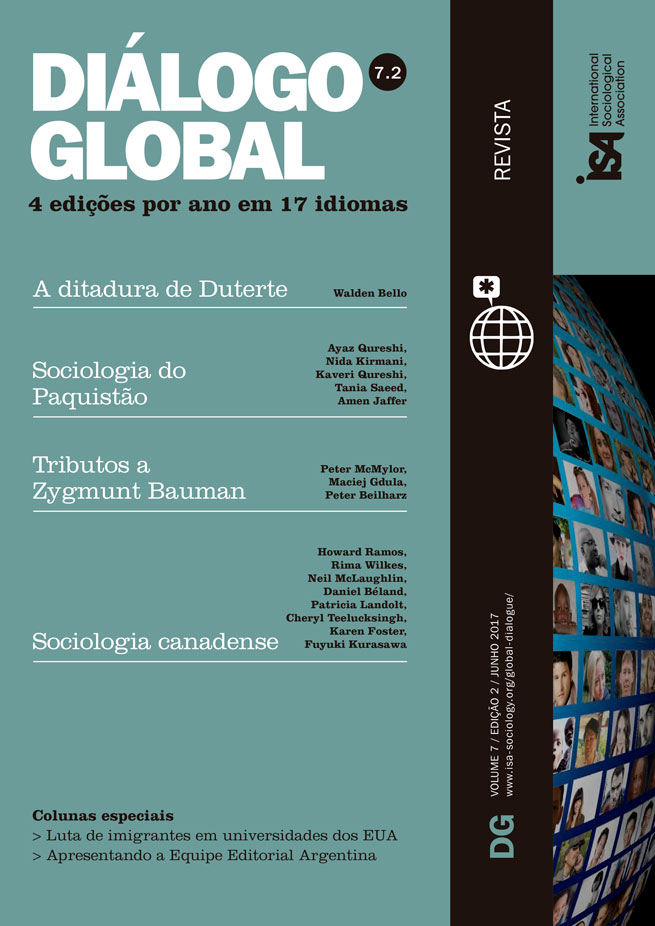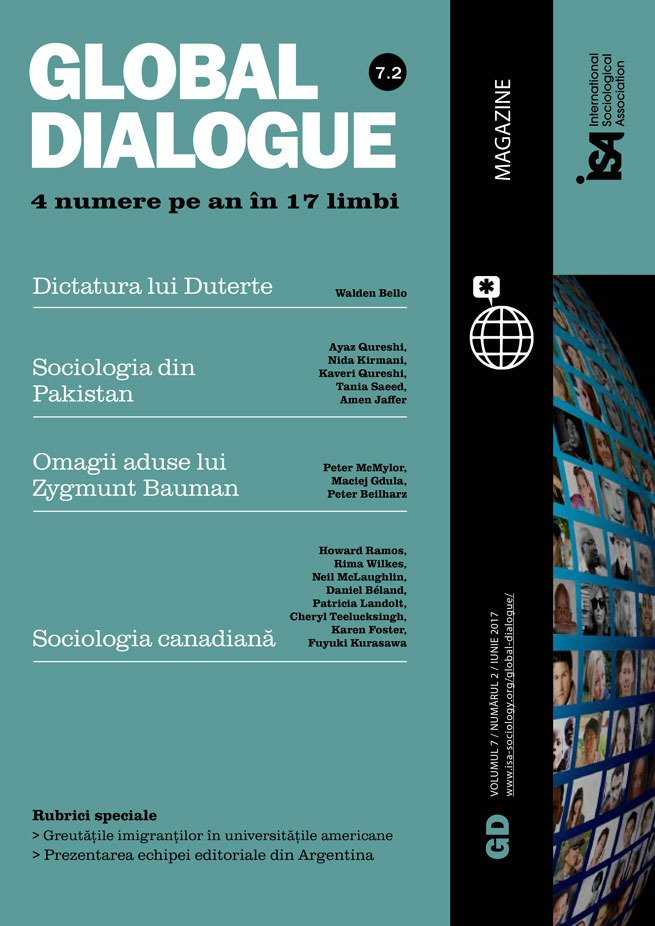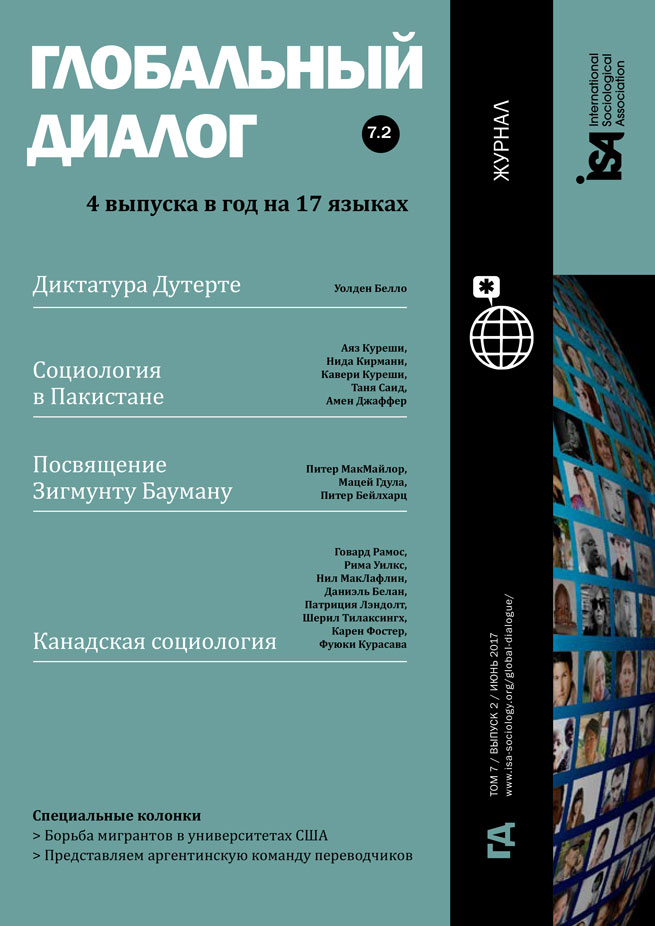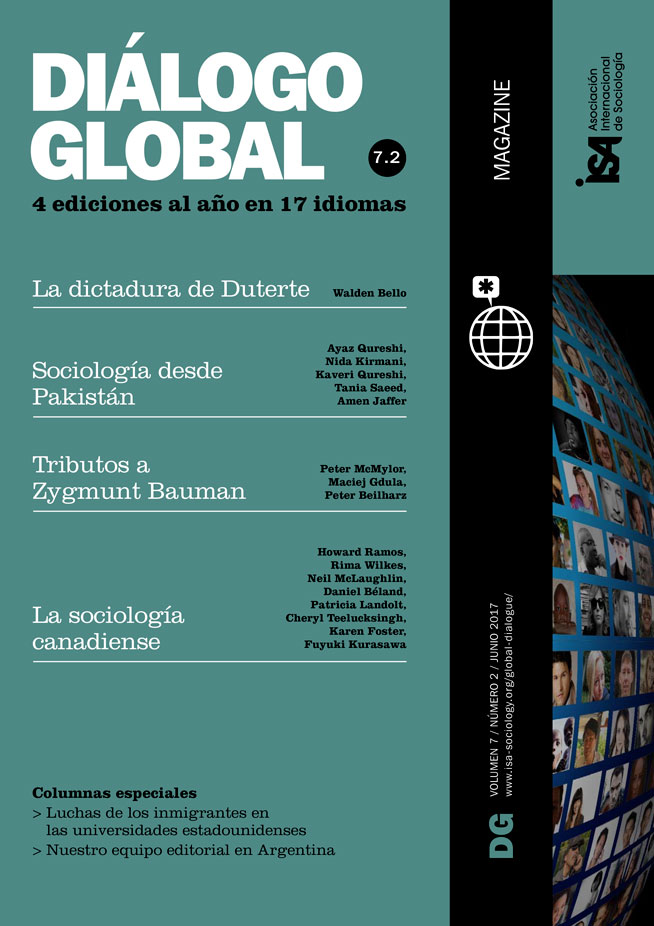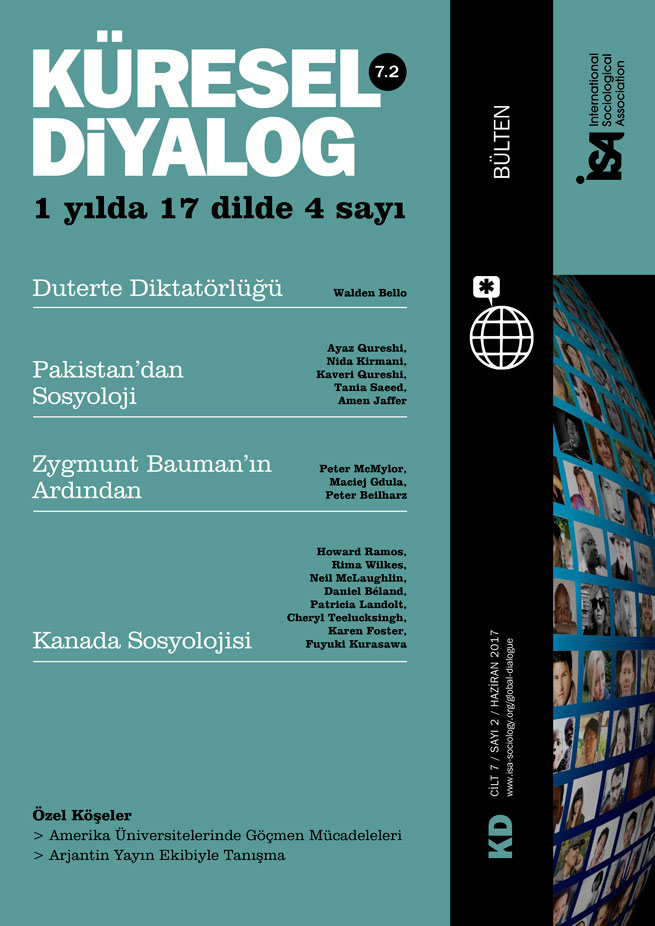Read more about Special Columns
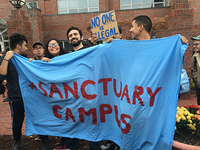
US Universities: A New Site for Immigrant Struggles?
by Sandra Portocarrero and Francisco García
May 29, 2017
We joined Global Dialogue (GD) in 2016, following five years of impeccable Spanish translation performed under Majo Álvarez Rivadulla’s supervision in Colombia. Since then, each issue of GD has offered both a challenge and an opportunity to learn: after several weeks of intense work we are left with a great sense of accomplishment.
Translating is never straightforward. As the Romanian team recently noted, an initial problem involves new words that have not been yet formally translated. But given that Spanish is widely used both in academe and international organizations, we rely on many sources – articles, reports, white papers, etc. – to search for Spanish equivalents of English sociological and political neologisms. However, the very fact that Spanish is so widespread also poses specific challenges. Spanish is the official language in 21 nations, with almost 500 million native speakers worldwide. Every region, even in scholarly circles, has its own distinctive version of the language, in which the same concept may be differently phrased. In order to tackle this problem we spend a lot of time debating the best way to convey a rather “neutral” Spanish, or how to be fair to local and regional linguistic variants.
Yet the complexities of multiple forms of enunciation and reception go well beyond one specific language. For example, trying to translate an English word that has an apparently “transparent” Spanish equivalent – liberal – proved complicated when used to depict a politician’s ideological leaning. Our first option was the Spanish term liberal. But both in Spain and most Latin American countries liberal has a neat conservative connotation. An alternative was to use the word progresista (progressive), but in many Latin American contexts, this word evokes leftist thought. Thus, it would have been utterly inappropriate to use progresista to refer to a politician who may be open-minded regarding family values, for instance, but still supports neoliberal economics, extensive military intervention and similar policies (as some so-called liberals in developed nations tend to do). Translating this kind of term involves a deeper investigation of various alternatives and their implications.
Another problem that we regularly face relates to nouns’ genders, which are dealt with very differently in English and Spanish. Of course GD’s editorial team is aware of women’s struggles worldwide, and the journal includes articles about women’s rights, gender issues and feminist debates in different countries. Many critics maintain that Spanish (and other languages) have gender biases; thus, some authors – especially when addressing gender inequalities and related topics – may adopt deliberate writing strategies to tackle such biases. But as we often translate English texts previously written in third languages (in which gender biases might be more obvious), an author’s subtle word choices meant to challenge biases and sexist writing in the original language can be unwittingly obscured in our translations.
Unlike other editorial teams, we chose to concentrate our workload among a rather small group at the Department of Sociology of the National University of La Plata. Once we receive the English version of GD, Pilar and Martín share out the articles according to thematic affinity and personal interests. Translators translate each article on their own and then crosscheck their work with each other. Later, Juan revises all translations thoroughly and comprehensively. Throughout this process we receive Lola Busuttil’s invaluable advice. Her sound competence in several languages and long experience in translation is crucial for helping us improve the Spanish version of GD.
Participating in GD has been very enriching, both for developing our translation skills as well as putting us in touch with an immense variety of social topics and contexts. Global Dialogue helps us know the world better, and in so doing it stimulates our sociological imagination.
Juan Ignacio Piovani is Professor of Social Research Methods at the Department of Sociology, National University of La Plata, and researcher at the National Scientific and Technical Research Council (CONICET, Argentina). He earned an MSc in Social Research Methods & Statistics from what is now City, University of London (UK), and a PhD in Methodology of the Social Sciences from Sapienza - University of Rome (Italy). He was a postdoctoral fellow in Social Sciences at the National University of Cordoba (Argentina) and at the Postgraduate Program in Sociology and Anthropology, Federal University of Rio de Janeiro (Brazil). For several years he conducted research into the history, rationale and foundations of sociological methods. Since 2011 he is the director of the Research Program on Argentinian Contemporary Society (PISAC), an initiative that articulates several projects and involves 50 Schools of Social Sciences in public universities across the country.
Pilar Pi Puig studied Sociology at the National University of La Plata (Argentina). She is currently a PhD student in Social Sciences at the same university. Her research is framed within the sociology of the environment, and her interests are environment, poverty and inequality in urban contexts. She works at the Department of Sociology, where she participates in several research projects regarding methodological issues in the study of poverty and inequality. Pilar is also involved in extension programs in deprived neighborhoods of the city of La Plata and in various exchange activities with colleagues from the University of Wuppertal (Germany).
Martín Urtasun studied Sociology at the National University of La Plata (Argentina), where he is currently pursuing doctoral studies in Social Sciences with a scholarship granted by CONICET. Martín conducts research into the current “preemptive” security policies based on technological devices, particularly urban video surveillance. He follows an ethnographic approach theoretically informed by pragmatic sociologies and by the studies of science, technology and society. He is also interested in popular education, and participates both as teacher and activist in a People’s High School for adults, organized within a social movement.
Juan Ignacio Piovani, member of ISA Research Committees on Futures Research (RC07) and Logic and Methodology (RC33)
Pilar Pi Puig, National University of La Plata, Argentina
Martín Urtasun, National University of La Plata, Argentina
This issue is not available yet in this language.
Request to be notified when the issue is available in your language.
If you prefer, you can access previous issues available in your language:
